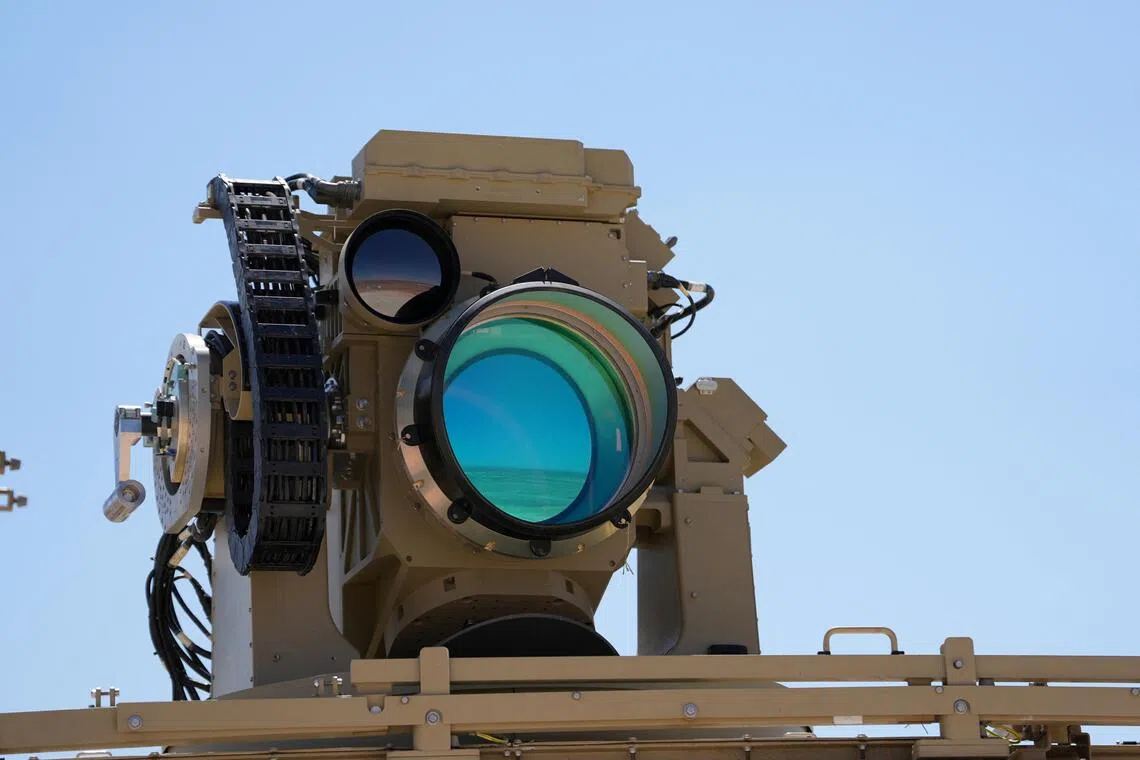Israel’s anti-missile laser system ‘Iron Beam’ ready for military use in 2025
Sign up now: Get ST's newsletters delivered to your inbox

Current missile interceptors cost at least US$50,000 (S$64,000) each, while the cost is negligible for lasers like Iron Beam (above).
PHOTO: REUTERS
- Israel's Iron Beam, a low-cost laser system, successfully completed missile interception tests and will be operational this year, says the Defence Ministry.
- Developed by Elbit Systems and Rafael, Iron Beam counters rockets, mortars and UAVs, complementing Iron Dome with negligible running costs.
- Iron Beam is the "first... high-power laser interception system (to reach) full operational maturity" and Elbit eyes airborne lasers for air defence.
AI generated
JERUSALEM - A low-cost, high-power laser-based system aimed at destroying incoming missiles has successfully completed testing and will be ready for operational use by the military later in 2025, said Israel’s Defence Ministry on Sept 17.
Co-developed by Elbit Systems and Rafael Advanced Defence Systems, “Iron Beam” will complement Israel’s Iron Dome, David’s Sling and Arrow anti-missile systems, which have been used to intercept thousands of rockets fired by Hamas militants in Gaza, by Hezbollah from Lebanon, and by the Houthis in Yemen.
Current rocket interceptors cost at least US$50,000 (S$64,000) each while the cost is negligible for lasers, which focus primarily on smaller missiles and drones.
“Now that the Iron Beam’s performance has been proven, we anticipate a significant leap in air defence capabilities through the deployment of these long-range laser weapon systems,” the ministry said.
After years in development, the ministry said it tested Iron Beam for several weeks in southern Israel and proved its effectiveness in a “complete operational configuration by intercepting rockets, mortars, aircraft and UAVs (unmanned aerial vehicles) across a comprehensive range of operational scenarios”.
The first systems are set to be integrated into the military’s air defences by year-end, it said.
Shorter-range and less powerful laser systems are already in use.
Iron Beam is a ground-based, high-power laser air defence system designed to counter aerial threats, including rockets, mortars and UAVs.
Defence Ministry director-general Amir Baram said: “This is the first time in the world that a high-power laser interception system has reached full operational maturity.”
Rafael chairman Yuval Steinitz said Iron Beam, which is built with the company’s adaptive optics technology, “will undoubtedly be a game-changing system with unprecedented impact on modern warfare”.
For its part, Elbit is working on the development of high-power lasers for other military applications, “first and foremost, an airborne laser that holds the potential for a strategic change in air defence capabilities”, chief executive officer Bezhalel Machlis said. REUTERS


